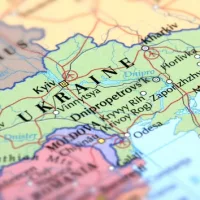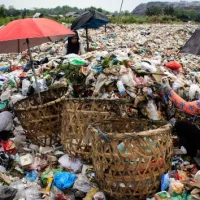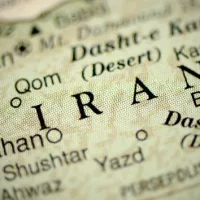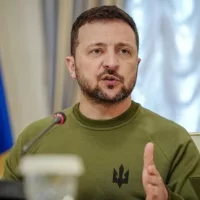 iStock/Thinkstock(KIEV, Ukraine) — The “white convoy,” as it’s become known as, is now only miles away from the Ukrainian border, but it doesn’t mean it will cross over from Russia any time soon. The 280 trucks are parked in a field waiting for politicians to decide its moves.
iStock/Thinkstock(KIEV, Ukraine) — The “white convoy,” as it’s become known as, is now only miles away from the Ukrainian border, but it doesn’t mean it will cross over from Russia any time soon. The 280 trucks are parked in a field waiting for politicians to decide its moves.
Ukrainian authorities are adamant about not letting the vehicles through. Even if these trucks carry food, sleeping bags and generators, they are, after all, military trucks belonging to an army that is responsible for bloodshed in the east of their country. They believe the convoy is a “Trojan horse” and under the pretense of humanitarian aid, the Russians are carrying out a PR exercise to cover up their meddling in Ukrainian affairs.
Russia’s declared good intentions are questioned by Ukraine, and the fact that over some stretches of its route the convoy was accompanied by several Russian military vehicles and two helicopters doesn’t put Ukrainian authorities at ease.
Interior Minister Arsen Avakov described it as a “provocation by a cynical aggressor” and that Ukraine will not allow it onto its territory.
A spokesperson for the Ukrainian Ministry of Defense told ABC News that late Wednesday, some trucks reached the border crossing of Shebienko-Pletnovka but were not let through by Ukrainian border guards. The trucks turned back without incident.
A solution that the Russians are likely to exploit is to cross into Ukraine at border posts held by pro-Russian separatists near the Lugansk region — a part of Ukraine in Russian hands. This, however, would be an admission that the rebels are controlled by Russia — something that the Kremlin has been denying all along.
The Russians have been trying to legitimize their actions by asking the Red Cross to endorse the operation. A spokesperson for the Ukrainian Security Council in Kiev told ABC News that Russia is clearly trying to buy time and no one is keen to rush into trouble.
Only on Thursday, the Red Cross agreed to step in and perhaps help resolve the stalemate by sending high level negotiators to Moscow and Kiev.
The “white convoy” has become a focal point, but the context in which this “humanitarian aid” operation is being carried out raises fears that President Vladimir Putin’s intentions may indeed have little to do with a peaceful resolution to a problem he himself created. Russia is doing very little to de-escalate the conflict — indeed, quite the contrary, some say.
On Thursday, Putin chaired Russia’s Security Council session in recently annexed Crimea. He vowed to allocate $552 billion to Russia’s defense budget over the next six years.
Ominously, Putin hinted that Russia had reason to intervene in Ukraine since the country was in chaos and drowning in blood. Russia, he said, would do all in its power to stop the bloodshed.
Speaking to parliamentarians, Putin dismissed Western sanctions imposed on the Kremlin by saying that they were only a beneficial stimulus and would ultimately strengthen Russian producers.
On the economic front, the conflict between the two countries took a turn for the worse on Thursday as the parliament in Kiev decreed that the Ukrainian Security Council had the right to impose sanctions on Russia. Russian goods may be banned from transiting Ukrainian territory, Russian radio and TV may not be re-transmitted, and Russian assets and investments may be frozen. Most important of all, 65 Ukrainian companies cooperating with Russia may no longer export their products. Ironically, much of the Russian arms and aviation industry is dependent on Ukrainian components.
In eastern Ukraine, more people are killed or injured by the day, many of them ethnic Russians. The Unite Nations’ human rights office in Geneva said Wednesday that its “very conservative estimates” show the overall death toll has risen to at least 2,086 people as of Aug. 10, — up from 1,129 on July 26.
Some 74 civilians have been killed and 116 injured during the past three days in Donetsk alone. These figures will likely rise by the end of Thursday — heavy artillery exchanges are reported in the center of town.
Another worrying development hinting at the conflict’s escalation was announced by the Ukrainian Ministry of Defense, which warned that the Russian-backed rebels started to plant land mines.
But clearly, Putin must be doing something right judging by the approval he is getting from his countrymen. Never during his terms in office has he enjoyed such a high popularity rating — 84 percent. This figure has almost doubled since the annexation of Crimea in March this year.
For years, Putin and his propaganda machine have been telling Russians that all that is not right in Russia was caused by the West, that NATO was at Russia’s doorstep and preparing to pounce. Now, he struck the right chord by showing the average Russian that their motherland is once more to be reckoned with, that he or she can once again be proud, that neighboring countries can be intimidated.
Media have been a great contributor to Putin’s efforts to wake those sentiments. A popular Moscow daily carried one sample on its website Wednesday.
Justifying the “white convoy,” it claimed that the Lugansk and Donetsk regions in Ukraine are facing a “humanitarian catastrophe” and that “Kiev fascists were planning mass murder by starving ethnic Russians — and that Moscow must save them urgently.”
Follow @ABCNewsRadio
Copyright 2014 ABC News Radio















